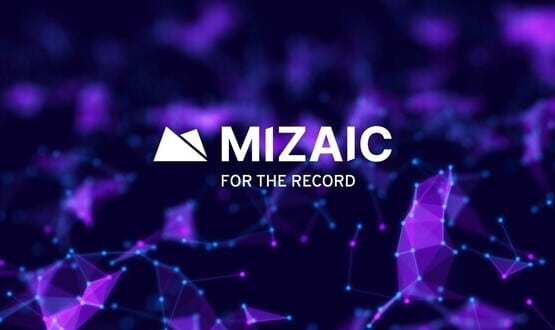Camden integrated care record used by 1,400 staff in 18 months
- 4 September 2017

More than 1,400 health and care professionals in Camden have accessed information via a shared care record since the system went live last year.
The Care Integrated Digital Record (CIDR), run by Camden CCG, allows for patients’ information to be accessed by health and care organisations across the borough.
The record went live in January last year and is now accessible from 34 out 36 Camden GP practices as well as four trusts including University College London Hospitals NHS Foundation Trust.
Connected systems include EMIS, Cerner and SystmOne.
“Integration with EMIS has been particularly key in driving GP adoption by streamlining workflow”, commented CIDR programme manager Julian Young. “CIDR can be accessed directly from the GP system, without the need for an additional log-in.”
[themify_box icon=”info” color=”gray”]
The organisations joined up to CIDR:
- 95% of Camden GP practices
- University College London Hospitals NHS Foundation Trust
- Royal Free Hospital NHS Foundation Trust
- Central and North West London NHS Foundation Trust
- Camden and Islington NHS Foundation Trust
- Coordinate My Care
- London Borough of Camden
[/themify_box]
“We spent quite a lot of time trying to make this the best possible offer for GPs and they’re probably the hardest audience to tackle as their systems tend to have the richest data in them already”, Young said.
He said one of the biggest challengers prior to CIDR was transfer of care, with the handover process being a little disjointed. “Where communicating isn’t always easy this acts as a bridge.”
The portal uses the Rhapsody Integration Engine and Clinical Portal, provided by Orion Health, together with NextGate’s Enterprise Master Patient Index. According to Young, these partners helped overcome a core integration challenge to match an abundance of data held in different systems and in different formats.
Camden GP Ehsan Alkizwini, clinical lead for the project at Camden CCG, said CIDR has helped avoid unnecessary delays and duplicate testing, as well as reducing wasted appointments and cutting time spent chasing test results.
“It also allows us to reassure patients sooner. CIDR helps clinicians to make better informed decisions about patients’ care which may enable them to receive more appropriate treatment, sooner and safer.
“When results are not received in a timely fashion, it delays treatment and management of a patient, so they will be suffering longer because we are not sure how to proceed next.”
Digital Health News has reported extensively on the implementation of shared care records in various local health economies. Doncaster and Dorset both announced plans for such a setup earlier this year. In Somerset, use of the EMIS EPR Viewer has enabled A&E staff to see patients’ GP records.
The Hampshire Health Record, meanwhile, began as far back as 2005.
The benefits of an integrated record across health and social care has also been recognised at a national level.
The Summary Care Record, a key plank of the National Programme for IT, was formally launched in October 2010. The project was initially beset by concerns over privacy and consent, a controversy subsequently mirrored by the care.data project.
CIDR: bringing it all together from CIDR Camden on Vimeo.





6 Comments
Moorfields Eye Hospital?
I think we’ve tried too hard and invested too much in national solutions and we will never truly solve this. There are too many moving parts in the system to try and universally standardize this. People can’t even agree on technical standards nevermind all the 100s of variations on a theme and the myriad of contracts and political issues. To top it all somewhere between 50% and 75% of the NHS doesn’t seem to understand the basics of data protection!
And then when I need my data and end up in A&E next time I might well be on holiday and I’m still stuffed. Even when GP record sharing works it doesn’t include specifics of test results & xrays, etc from hospitals so I’m subjected to repeats and other problems as I move around.
It’s time to recognize the patient is the only constant in any healthcare system.
I’ve started to resolve this peronally by always making subject access requests. so now I do have a lot of useful information when I need treatment or a case review but this is very slow and expensive and the NHS makes it hard work.
The NHS often treats me vexatious b@st@rd especially when I ask them to email me. I’ve had to make formal complaints and even get the ICO involved in many cases too. All because I want an electronic copy of my record!
It shouldn’t be an uphill battle. Evidence shows that giving data back to patients improves understanding and health outcomes. The open notes study has done it for millions of patients! why are we still debating this in the NHS?
Only the other day the NHS said they are waiting to see if Subject Access Requests increase under GDPR. Why are we waiting? Why are we not routinely giving data back to patients?
When I turn up, ask me if and how I would like my data and when the appointment is over send it to me. We would be leaps and bounds ahead of where we are today if we just did this one thing.
Instead, the NHS dances around the IG pole misconstruing data protection and making statements about not being able to email because of “privacy and security”. Then there are those who talk about not being able to share because patients might not understand and “first do no harm” whilst completely blind to the harm being done by current practices.
People die and suffer due to the lack of data portability today! right now! you are causing harm!
Email is far from perfect or 100% secure but it exists as an accessible standard to most people who want it. So offer people a choice between paper and email and start giving data back. If you want to add a secure portal or whatever to this fine, but don’t make patients suffer and die for another 5 years while you mess about trying to do it.
The whole system needs to stop thinking about itself and put the patient first. Stop debating all of this and make some of it real, TODAY!
Dan, I agree with (nearly) every word you say. In fact a close associate of mine, “Dick Vinegar, the Patient from Hell” beat most of the same drums in the Guardian for eight years, and got a hail of abuse, mostly from medics.
Nobody appears to understand that inadequate patient records, inadequately communicated, cost lives.
So, what’s to do:
1. Recognize that a patient should have one patient record for life, and that the proper person to hold it and manage it is the GP and the patient. Not the hospitals whose role is to contribute timely data, in a way understandable to the patient.
2. Technical and clinical standards bodies should be beefed up, to minimize incompatibility. At the moment they are lumps of flab. A middleware industry should be set up to produce APIs
3. A breed of “smart patients ” should be recruited, to counteract the partial vision of today’s “health professionals”, IG mafia, privacy fuss-pots, and put the patient first, as Dan says.
I doubt whether doing these things will actually work; the fissiparous, negative mindset is too deeply ingrained.
Good to see progress. I always had a very positive experience living in Camden and had a very good GP practice, which is more than can be said for Oxfordshire NHS services.
One thing I would say though is that this continued siloed based approach doesn’t really help me as a long term patient.
I need data portability and a copy of my data so that it follows me. Royal Free et al have been less than helpful when it comes to providing me with a copy so now when it comes to care in Oxfordshire it’s always “we don’t have that information”.
I, like Dan, suffer from the “siloed approach”.
Three years ago, my GP merged with another, as part of a “Health centre”. This was great in one way, because the new health centre implemented EMIS Web, which meant that I could see my test results as they came in. Great, as far as it goes. But they only give the test results ordered by the GP and one of the hospitals which treat me. The hospital which treats most of my “multiple morbidities” ( aortic stenosis, incipient diabetes, kidney problems, high blood pressure) is not on the system. This means that my results from that hospital do not appear on my record. This means that, to a casual viewer, my record is positively misleading. What worries me is that none of the clinicians, at the GP surgery or the hospital, appear concerned by this.
Whereas in Dan’s case, Camden and Oxfordshire are some distance apart, my two hospitals are just 4 miles down the road from each other. Silos rule OK!
The silo I live in in SW London is very small. The Camden silo is larger and the Great North is pretty big. But they are still silos. They still have boundaries surrounded by a hinterland which cannot communicate with them. Pity the poor patients who live on or beyond those borders.
I, as a patient, like Dan, expect something something less local. but more national. I suspect we are not going to get it, because “bottom up” is the current mantra, after the “top down” of Connecting for Health was discredited. ten years ago. All we can hope for is bigger silos.
Are GP records streamed in real time via the Medical Interoperability Gateway?
Comments are closed.